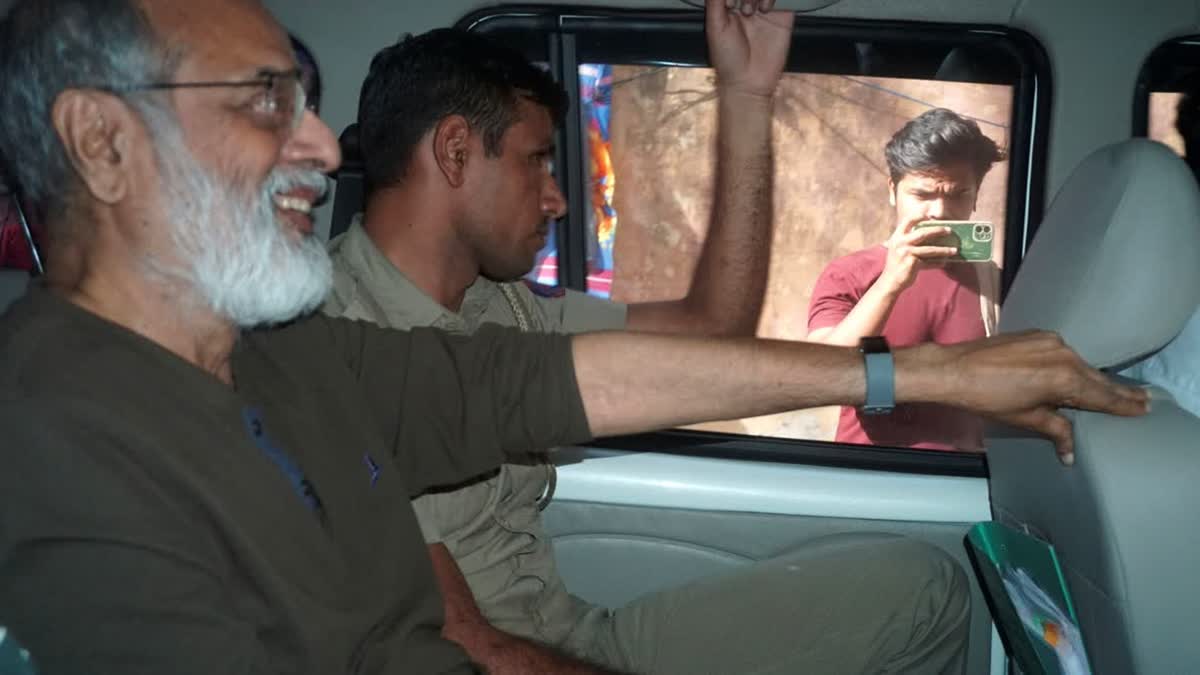Hyderabad: The role of newspapers and the media is fundamentally rooted in the presentation of concrete facts. Independent media, which serves as a beacon illuminating the inner workings of government operations, stands as the lifeblood of any thriving democracy. This pivotal role was underscored by the Supreme Court in April when it emphatically lifted the Centre's ban on the Malayalam news channel "Media One".
This landmark decision served as a stark reminder to the administration that, even in the name of national security, the rights of the people should not be trampled upon without sufficient evidence. However, despite the Supreme Court's resounding message, the sanctity of journalistic freedom has recently come under siege. Just this past Tuesday, the offices of the online news portal 'NewsClick' and the residences of its dedicated journalists were subjected to an intrusive investigation by the Delhi special police unit.
In a deeply concerning turn of events, the police apprehended 76-year-old Prabir Purkayastha, the founding editor of 'NewsClick,' and Amit Chakraborty, the organization's head of human resources, who is physically challenged. The very office that has been a bastion of critical journalism since its inception in 2009 was forcibly locked, and numerous electronic gadgets were confiscated by the police, flagrantly disregarding established rules and norms.
'NewsClick,' founded with the noble pursuit of prioritizing critical journalism, has consistently delivered stories that have been discomforting to the ruling administration. This includes extensive coverage of the enduring farmer protests against the detrimental farm laws. As articulated by former Supreme Court Chief Justice N.V. Ramana, journalism is a potent instrument for exposing the shortcomings of individuals and organizations alike.
The current Chief Justice of India, Justice D.Y. Chandrachud, has aptly noted that if the media is controlled and censored, truth remains obscured, and the very essence of democracy's dignity becomes tarnished. The recent aggressive actions of the Delhi police against the management and staff of 'NewsClick' represent a grave encroachment upon the foundational freedoms of the press.
The recent actions against 'NewsClick' are unfortunately not isolated incidents but part of a troubling pattern of harassment. Two years ago, investigative agencies, including the Enforcement Directorate (ED), Income Tax Department, and Delhi Police's Financial Offenses Wing, conducted searches at the offices and residences of 'NewsClick' staff on suspicions of money laundering.
During these searches, laptops and phones were confiscated, and a thorough investigation into the company's financial transactions ensued. Despite the intrusive nature of these actions, 'NewsClick' has maintained its innocence, asserting that the authorities failed to provide sufficient evidence to substantiate the criminal allegations.
What makes this situation even more concerning is the perception that the government views criticism as an act of treason and anti-national propaganda, leading to a deliberate targeting of dissenting voices. In 2021, the Delhi High Court had to step in and direct the ED to refrain from taking harsh actions against 'NewsClick' and its editors, including Prabir Purkayastha.
However, the situation escalated further when the Delhi Police filed a case under the draconian 'Unlawful Activities Prevention Act' (UAPA) against 'NewsClick' last August, accusing the portal of receiving funds from China for pro-Chinese activities in India. The initial reluctance of law enforcement officers to release a copy of the FIR raised serious concerns about transparency and accountability.
In response to these worrisome developments, numerous journalist associations united to send a petition to the Chief Justice of India (CJI). The petition voiced deep concern over the growing trend of labelling journalism as terrorism and highlighted the misuse of investigative agencies as weapons against journalists.
Also read: Delhi Police raids Kerala residence of former NewsClick employee
It emphasized the chilling effect such actions have on the press, with many journalists now working under the constant threat of reprisals. In a democratic society, the tolerance of dissent and the respect for differing opinions are pillars of governance. Regrettably, the ruling governments, instead of engaging with dissenting voices, have chosen to clamp down on them, thereby undermining the fundamental cornerstone of press freedom: the people's right to express themselves freely.
By weaponizing investigative agencies, they are tightening the shackles on this vital freedom, posing a grave threat to the democratic values that should be at the heart of our society. Mahatma Gandhi's wisdom echoes through time when he asserted that "the freedom of the press is truly respected only when the press can comment on anything, using strong language."
In a nation like India, which has been graced by few leaders of his calibre, there is a disconcerting trend where individuals who shy away from tough questions are lauded as great leaders. Instead of embracing dissent and diverse viewpoints, some in positions of power perceive newspapers and media outlets that challenge the government's stance on public issues as adversaries to be attacked and silenced.
Even in Andhra Pradesh, the government led by Jagan Mohan Reddy has employed a similar draconian strategy, resorting to sedition charges against two media outlets. This tactic, unfortunately, reflects a broader pattern of harassment directed at journalists who courageously unearth the truth. Shockingly, from 2014 to 2019, over two hundred journalists across the country fell victim to brutal attacks, with forty of them tragically losing their lives unjustly.
India's standing in the global press freedom index has been in a steady decline as the government's intolerance of critical journalism deepens. In 2016, India was ranked 133rd out of 180 countries, but this position has regrettably plummeted to 150th place and, most recently, to 161st on the list. In contrast, countries such as Norway, Ireland, Denmark, Sweden, and Finland actively foster independent journalism and uphold the principles of a free press.
The concerted efforts to stifle fearless voices and launch relentless attacks on journalists are unworthy of India, the world's largest democracy. Such trends not only infringe upon journalistic freedom but also fan the flames of totalitarian impulses, ultimately causing further suffering in the lives of the people.



